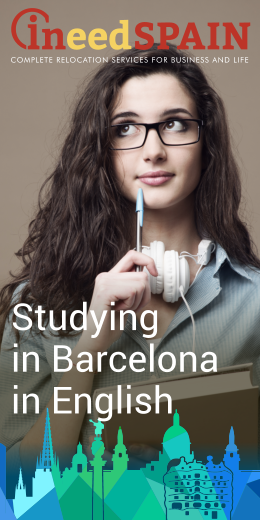
Any foreigner planning to stay in Spain for a period exceeding 90 days needs a Spanish temporary residence permit. No visit, residence, work, or study permits are required for citizens of the EU/European Economic Area countries, including Iceland, Lichtenstein, Norway, and Switzerland. The only bureaucratic procedures for Europeans to complete are to register with the local municipality (depending on the province) and to obtain a personal ID number. The Schengen area enjoys mutual borders and freedom of movement, which simplifies the procedure of obtaining a residence permit for Spain for EU citizens.
A residence permit is necessary for the following purposes: to register a person’s identity (together with the NIE) and to obtain the status of a legal immigrant, which grants the same rights and privileges as those of Spanish citizens.
Obtaining a residence permit for Spain for non-EU citizens is a more complicated process. Spanish migration legislation also regulates this activity. Non-EU residents must obtain an entry visa to Spain first and apply for the residence permit afterward.
Work authorization provides an important difference among the various types of Spanish residence permits. Instead of a work permit, it is much easier to obtain a non-lucrative residence permit in Spain; however, the ability to demonstrate financial stability requires proof. This category of residence permit in Spain can be obtained for a time frame of 1 to 5 years, depending on its specific type.
Spanish residence permit requirements vary among three main types:
- a residence permit with an exclusive right for residence;
- a residence permit with work authorization and residence;
- a student residence permit with the right to part-time employment (20 hours per week).
Spanish Temporary Residence Permit: regulations and requirements

The Spanish temporary residence permit grants one permission to stay in the territory of Spain for a period of 90 days to 5 years without any employment obligations. The temporary residence permit is also called the “non-lucrative residence permit in Spain.” It is an ideal variant for those who can prove they have sufficient financial funds and the ability to cover all accommodation and family members’ expenses for the duration of their stay in Spain. The main requirement for obtaining the Spanish residence permit without work authorization is the presentation of adequate information to demonstrate the stability of one’s income abroad and the ability to cover all the related accommodation costs in Spain. It is an additional advantage to submit information about any property in one’s ownership as well as objects that contribute value to one’s financial reserves. This evidence is necessary to prove that the foreign resident will not occupy the valuable and scarce jobs currently available in Spain.
Calculating the sum of coverage necessary for residence in Spain is easy: it is defined by the IPREM index, or Indicador Público de Renta de Efectos Múltiples, multiplied by four. Traditionally, the IPREM is used as a criterion to determine whether to provide subsidies, scholarships, grants, unemployment benefits, and so forth. For minors, the sum is determined by the IPREM’s initial level. As of 2017, the IPREM constitutes 532.51 euros per month.
Despite various opinions about eligibility for the non-lucrative residence permit for Spain, it is not mandatory to own a residence property in the country. Practice shows that it is also normal for a residence permit to be granted based on long-term rental contracts.
Continuous stay in the territory of Spain (not less than 6 months per year) is another important requirement when one aims to obtain the Spanish residence permit and to preserve it in the future. It is necessary to confirm one’s continuous stay every time the residence permit is extended (after obtaining the permit, one must confirm his or her continuous stay within a year and every 2 years thereafter).
Other ways to obtain a residence permit for Spain

It is a greater challenge to obtain a residence permit for Spain with a work authorization. Nevertheless, in the year 2014, Spanish Immigration Legislation drafted and adopted a new law: “On Supporting Measures for Entrepreneurs and Their Internationalization.” This new legislation has cleared the way considerably for non-EU investors to enter Spanish markets and simplified ways for them to move to Spain. Moreover, the aforementioned law has brought together property buyers and entrepreneurs in Spain and shareholders in Spanish companies. According to this innovation, the residence permit for Spain for non-EU citizens who invest in the Spanish economy can be issued for up to 5 years and includes work authorization as well. Meanwhile, it is adequate to spend only one day per year in the territory of Spain. These requirements can be explained by the peculiarities of the economy in Spain and its development. It is a well-known fact that at the peak of its post-crisis recovery, the Spanish economy is in acute need of foreign investments and additional jobs.
The following describes the minimal amounts of investment necessary for obtaining the residence permit based on the purchase of property (residence permit based on Spanish property) and other economic activities:
- Investment amount in the shares of companies resident in Spain must be at least 1 million euros;
- Deposit in the Spanish bank also must be at least 1 million euros;
- Purchase of government bonds in the sum of 2 million euros and more;
- Establishment of one’s own business is also considered an investment activity in Spain, as long as new jobs are created and the beneficial impact of the company’s activity can be confirmed.
- Obtainment of a residence permit for Spain based on the purchase of property, if the cost of the object is at least 500 thousand euros.
Another way to obtain a residence permit for Spain is to get married to a Spanish citizen. In this case, one can apply for the residence permit even with an expired or invalid visa. As a rule, a residence permit is issued for a period of five years and includes work authorization. It is possible to apply for citizenship one year after the receipt of the original residence.
Studying in one of the Spanish universities is another popular way to move to Spain. There is only one condition: the number of working hours per week should not exceed 20 hours, so that it does not interfere with the primary purpose of stay in the country—studying. One must extend the student residence permit each year, depending on the course duration. Upon graduation, it is possible to gain eligibility for the residence permit should the graduate find a job in Spain.
Nuances to bear in mind when applying for a residence permit for Spain

All non-residents must apply in person for a residence permit in one of the departments of the Spanish Immigration Service. The application process is not complicated; it is a standard bureaucratic procedure that includes the preparation of required documents, their submission to the Spanish Migration Services, and a period of waiting for the results. As a rule, the process lasts from 4 to 8 months although processing times can vary. The following are the standard submission requirements when applying for the Spanish residence permit:
- Official application form in English or Spanish (one can find this form in an open access file online on the website of Immigration Services).
- Passport original and photocopies of all its pages (including the empty ones)
- Official confirmation of the absence of criminal prosecution (criminal records certificate) issued no earlier than 3 months before the documents’ submission.
- Medical insurance that sufficiently covers potential risks for the duration of stay.
- Financial Affidavit Form (confirmation of sufficient funds and revenues for the whole period of residence, depending on the type of residence permit requested).
- Confirmation of a place of residence in the territory of Spain (confirmation of a place to live in Spain). This can be either a deed of property ownership or an original, long-term rent agreement.
If applying for the student residence permit, proof of enrollment must be presented at the Spanish university. By contrast, when applying for the residence permit based on marriage, it is necessary to submit the marriage certificate. Often an interview is also scheduled for a couple to prove that the marriage is not fictitious. One must bear in mind that in the course of processing the documents, the Immigration Service officers might ask for additional documents and confirmations.
The specialists of INEEDSpain service center will gladly consult with you on any issues related to the residence permit application, provide you with all the valuable information you need, and assist you in preparing the required documents.





